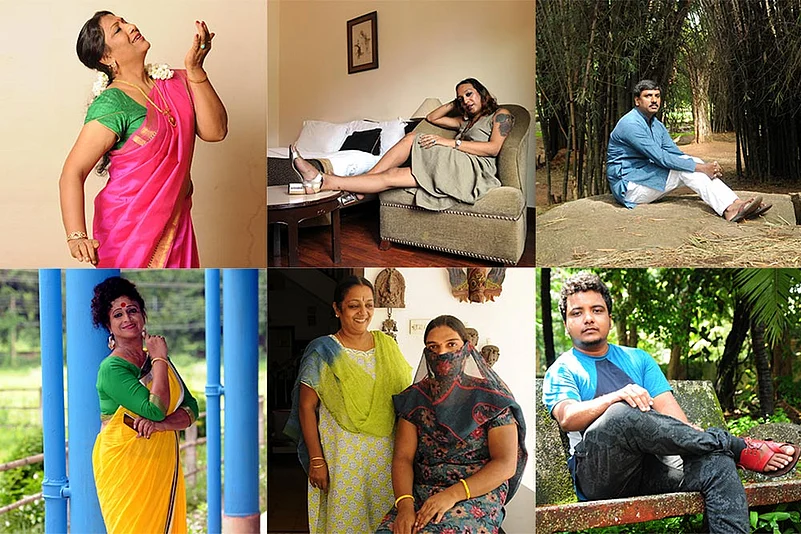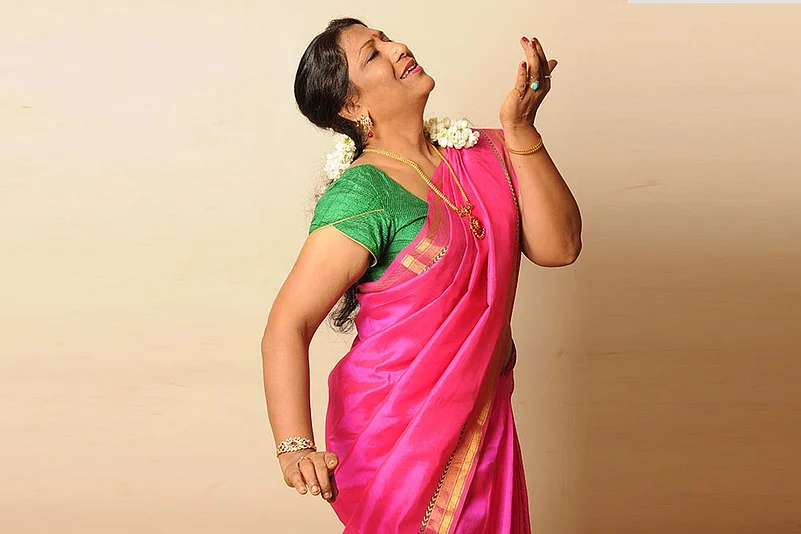
Chennai
Narthaki Nataraj, 52, Classical Dancer
“In the whole world, only the Indian government has awarded a transgender with an honour, and I was the first recipient in 2011. What a moment it was.”
I was born in Madurai in a well-off family. I had nine siblings. I don’t remember ever feeling like a boy. I realised that I was caged in the wrong body. I was not accepted by my family. At that time, no one knew much about the state of transgenders. I was an embarrassment to my parents so I had to leave my house at an early age. I did some menial jobs with my friend Sakthi Bhaskar. Sakthi and I are from the same town. We studied together and noticed our similarities. We left our homes together as our families did not accept us and she has been my support ever since. My sex change was a painful process. But, when I finally transformed into a woman both physically and mentally, I felt liberated. It was the end of an emotional struggle. A relief that I could finally be the person I was inside rather than the body I was trapped in.
In 1984, I went to the renowned Thanjavur Kittappa Pillai. He took a year to accept me. I later realised he wanted to make sure that I was serious and was the right person to pass on the treasure of the Tanjore Quartet style of Bharatanatyam. The height I have reached today, to be accepted by the same world that once shunned me, was possible because of him. The first time I danced outside school, it was at the Pillayar Temple in Madurai. When I finished dancing the audience applauded. The sound of their applause ignited a fire inside me and I wanted to keep hearing that sound. The thirst for that acceptance still continues.
In the whole world, only the Indian government has awarded a transgender with an honour and that was to me in 2011. When I walked up to get the Sangeet Natak Akademi Puraskar from President Pranab Mukherjee, he was listening to what the emcee was saying about me, and his expression was of understanding and pride. At that moment, I was thinking about the journey that had taken me there... all my struggles and my success.
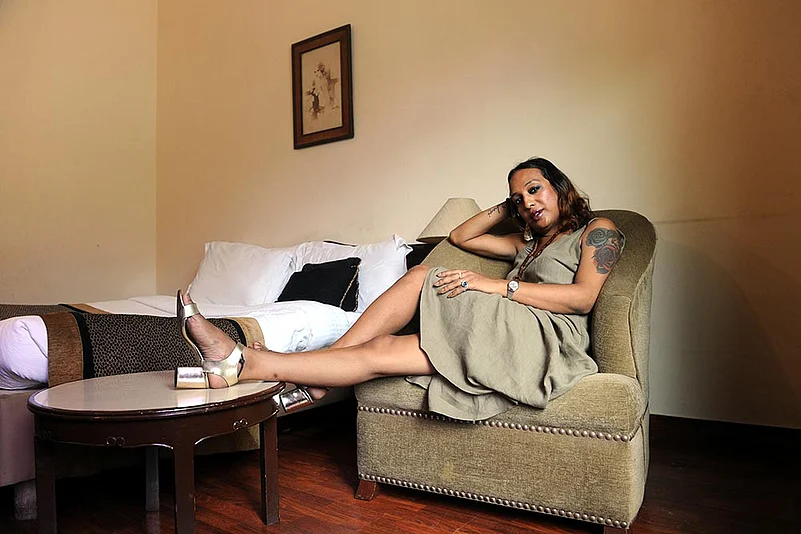
New Delhi
Rudrani Chettri, 37, Director, Mitr Trust, India’s first modelling agency for transgenders
“True freedom for me is freedom from stigma, discrimination and hatred. It would be great if my models adorn posters and
be on billboards.”
During my school days, I was an effeminate boy who was very comfortable in the skin of a male body. I was never abused in school, in fact I felt protected and my classmates accepted me for what I was. In higher classes, though I was not abused, a few boys avoided me; maybe they knew my sexual orientation. My change to total external femininity was gradual. After school, I decided to do my graduation through correspondence. I was worried I would have to deal with men who were masculine and sexually hyperactive. When I worked in a multi-national after graduation, my colleagues were very polite. I took hormonal therapy to be more feminine much later. In 2005, I became the director for Mitr, a government-aided NGO. My family has neither objected nor encouraged my behaviour. My mother, when visiting, is very comfortable with the way I am and she treats me like her daughter. My father prefers me to be low-profile, but that is not easy, for we trans people are conspicuous in a crowd. But I respect my father’s wishes and dress likewise when he is there.
Whenever I put up pictures on Facebook, I was complimented. My transgender friends wanted to be like me, so I decided to start a modelling agency in 2015 as Mitr’s initiative. Many trans people love dressing up and looking beautiful. I wanted to create a space where they can be employed while doing what they love. I felt they should find opportunities where they can find work other than begging and sex work. I found there were similar modelling agencies for trans people in New York, Bangkok etc. The media has been very supportive. We are hoping for crowd funding for the agency to really take off. My dream is for it to be very successful and for corporate houses to hire my models. It would be great if my models adorn posters and be on billboards.
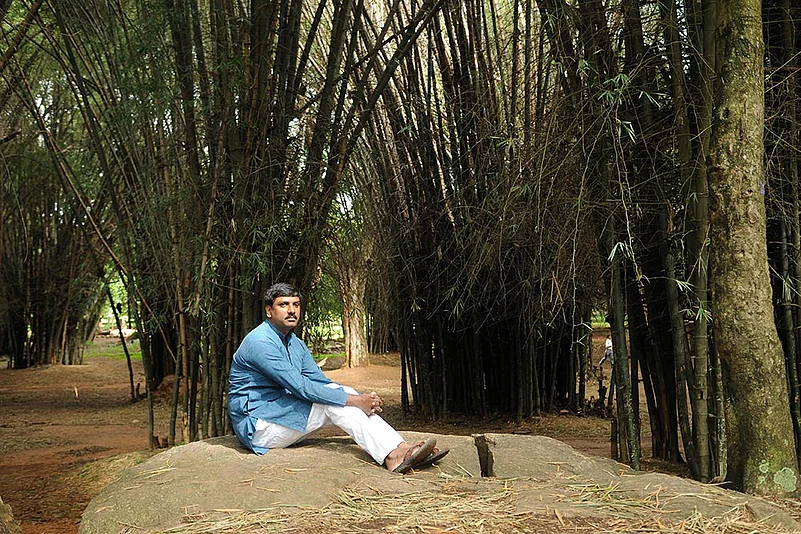
Bangalore
Uma Alias Umesh, 39, Executive sirector, Jeeva
“I didn’t opt for sex change—it was like two boxes and you could only go from one box to another. I question the gender binary. Even with this male body, I am a woman.”
I grew up in BV Palaya, a village in Karnataka. By the time I was seven, I knew I wanted to be a girl. I never let them cut my hair; I’d braid it and wear flowers and go to school. My parents never stopped me then. Maybe they thought I’d grow out of it. Once, when I was in Class 4, I wore my aunty’s sari to school. It was Independence Day and the headmaster looked happy to see me like that. He asked me to hold the national flag and lead the procession of students around the village. I was so happy when no one asked whether I was a boy or a girl.
This changed when I had to go to middle school in town. I had to cut my hair and behave like a boy. Of course, that couldn’t entirely hide my femininity and, maybe, it only made it come out sharper. I’d be mercilessly bullied and teased. Even my two elder brothers who were in the same school were embarrassed of me. So they’d complain against me and beat me up.
I stopped studying after I failed my Class 10. I joined a silk factory. It was a nightmare. I was raped every time I went to the toilet.... My father had decided to deny me my inheritance. I fought tooth and nail for my share, which I gave to my mother.
Once I went to Bangalore; at a bus stop, I saw another person like me for the first time. I was introduced to others in the trans community. I stayed on, making a living through sex work for two years, visiting Cubbon Park most nights. In 2004, I got a job with an NGO, Rs 1,700 a month. I no longer needed to do sex work. Eventually, I became a founder-member of the Karnataka Sexual Minorities Forum and Payana, and I am now heading Jeeva.
I didn’t opt for sex change—it was like two boxes, you could only go from one box to another. I question the gender binary itself. Why would I choose one or the other box? Even with this male body, I am a woman. The Supreme Court vedict gives me the liberty to self-define my gender.
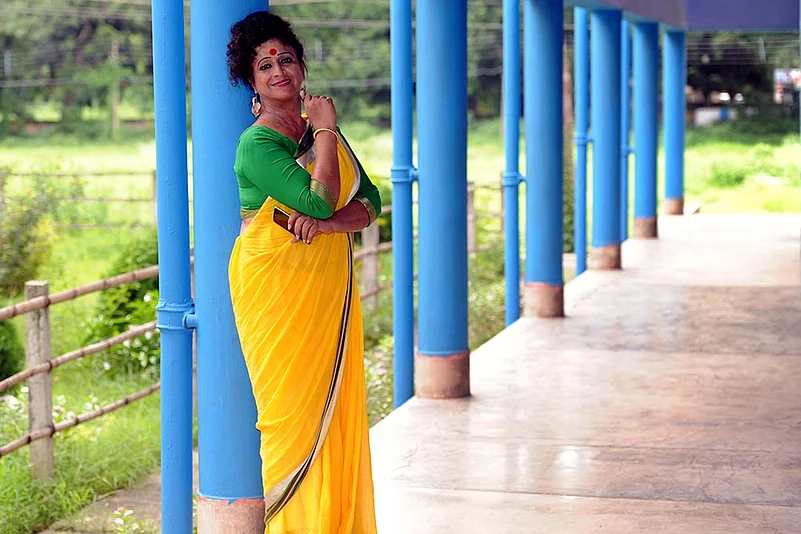
Calcutta
Manabi Bandopadhyay, 52, Principal, Krishnagar Women’s College, Bengal
“For me, freedom is where the mind is without fear and the head is held high. With my sex change, I have reached that state. My mind is free, so is my soul. I am free from being trapped in the wrong body.”
Ours was a large joint family with many cousins, aunts and uncles. We lived in the suburbs of Calcutta. I had two older sisters; in my mind and soul I was always a girl. I started wearing my sisters’ clothes and would play with them and help them with their chores. At home, we would enact skits and I would play the heroine. At that time, there was a stigma attached to being a film heroine. I used to play that role with total abandon and that inspired me. In the boys’ school I attended, I was special. I would get my shorts and pants tailored like skirts, much to my father’s chagrin. I pursued my studies diligently as I was worried about my future. I worked as a school teacher and then as a college professor. It was while researching for my doctoral thesis about the third gender that I made the decision to change to a woman. In 2003, I met psychiatrists and a team of doctors in Calcutta. Doctors were not encouraging, because a few others before me had committed suicide. Sex reassignment surgeries were not common in India then. And I also knew well that society would not accept transgender people and my life would be difficult. But I went ahead, at a cost of Rs 5.60 lakh. I had no support at all from anyone, family or friends. Even then, it was a wonderful feeling to make the change. I continued to research and submitted my PhD thesis in 2005 but when I went back to the college, my colleagues did not accept me. I was harassed and my increment was stopped by the college authorities. Though I had become a female, all my degree certificates said I was a male. The vice-chancellor called me after reading about me in the newspapers and informed me that the university had decided to award me my PhD in my new identity. I felt truly liberated.
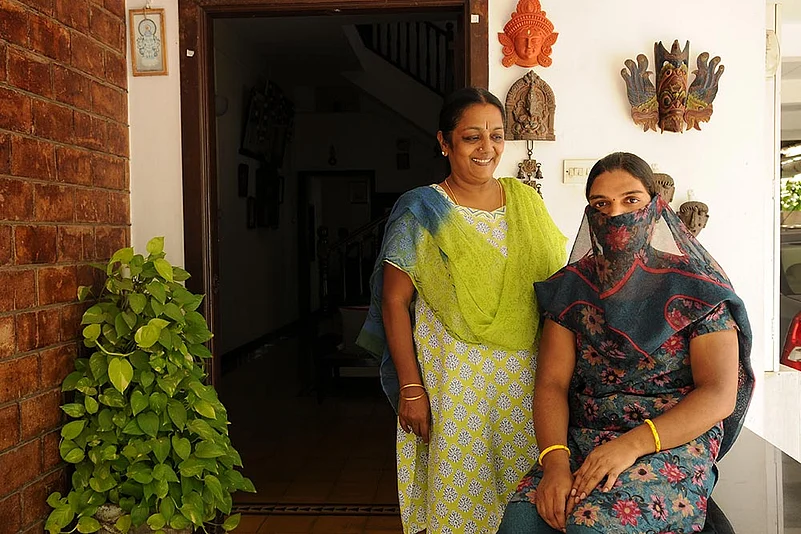
Chennai
Kannimozhi, 24, Household help
“I feel so free as a woman. It had been my dream since I was a child. I want to get married and adopt a child.”
“I come from a village near Vilupuram in Tamil Nadu. My father, a mason, has two wives and seven children, including me. I was six when I cross-dressed for the first time and put flowers in my hair. My father and brothers used to get mad seeing me and I’d get thrashed. At 13, the segregation began. I had to earn my own living, cook and eat my meals separately. One day, my father threw out my things because he was embarrassed of me. An agent helped me find work in Chennai, where I met other trans people. They told me about sex-change surgery and became family to me. It had always been my dream to be a woman, but I’d been scared of landing up in sex work or panhandling if I changed my sex. Now, I am finally so happy to get rid of that fear. After the sex change, there was a ceremony akin to a woman’s coming-of-age rites. I’m happy I was able to return to this house, get my job back.”
Kanimozhi’s employer Azhagu Annamalai, 53, says, “Kannimozhi had come to my home as Murugan about four years ago. She was effeminate even when she wore shirts and trousers. She was extra careful with the way she spent her money; I learnt later that she was saving up for her sex-change surgery. About a year ago, she asked for a six-month leave and told me she wanted to change her sex. Though I did not encourage her, I did not discourage her either. When she came back after her surgery, she had grown her hair long and was in a salwar kameez. I put myself in her place and realised I should not judge her but accept her as a human being. What would happen to her if I threw her out, I wondered. Surely, it wouldn’t be easy for her to land a job. So I took her back into my house. One morning, Kanni went out to buy groceries and I noticed a boy following her, teasing her. I warned him I would report him to the police. Since then, Kanni has not been followed or teased. The whole neighbourhood has accepted her as a woman now.”
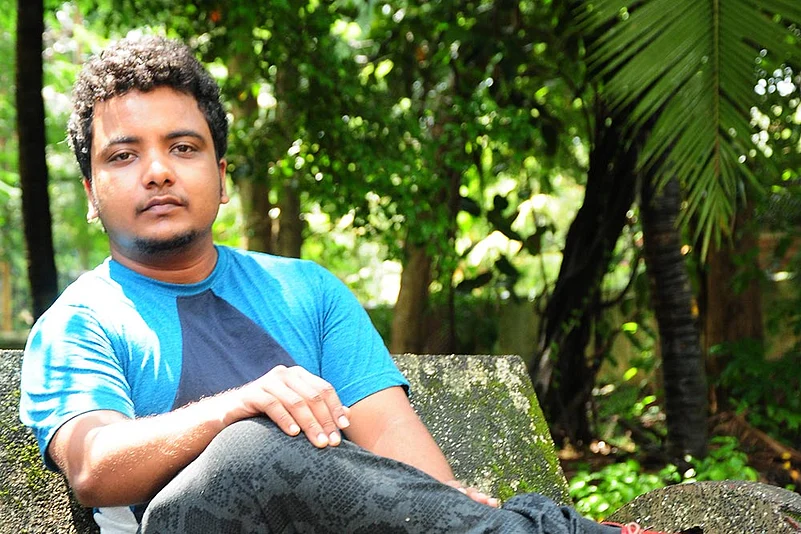
Bangalore
Gee Imaan Semmalar, 29, Publishing
“Transwomen have to deal with misogyny too. But I am now in a space where I am free from this. I am socially seen as a man. And I feel no fear when I travel late at night.”
I was raised by a single mother who was a teacher in Kerala. I have two older brothers. I expressed my gender differently ever since my school days. During the class recess, I would run to the football field to play ball. I would also dress in my brother’s old clothes. I left Kerala when I was 18 to do my English Honours in Delhi University and post-graduation in Arts and Aesthetics from JNU. I did not fit into the girls’ hostel and would constantly be stopped at the gate. When you are a trans person, you have to face violence for looking different even in public spaces because gender is a public thing, unlike sexuality. In Kerala, trans persons do not enjoy much freedom and so I never returned to my homeland. I have been in Bangalore for the past six years. In 2013, it was a logical choice to do a gender-affirming surgery. If you don’t feel your body is right, then medical interventions are as important as a heart surgery for you. My right to bodily integrity and life depended on it. I went to a private clinic in Mumbai to do the procedure for mastectomy. It was a botched operation, the graft ‘failed’. Medical negligence is common to the trans community. Doctors tend to take advantage of the vulnerable community who have no recourse to legal help. I felt complete despair at what had happened to me. Next year, I went to another doctor to get another surgery in order to fix the botched surgery. The surgeon told me it was the worst he had seen. My family has been very supportive and it was my middle brother who first introduced me as “my brother.”
Nina Simone, one of my favourite singers, once described freedom as the lack of fear. I believe that freedom is to be able to live a full and equal life irrespective of your caste, gender, class, race and sexuality. And until that freedom is available to everyone, across categories, the struggle must go on.






